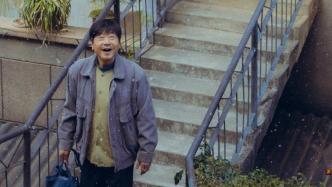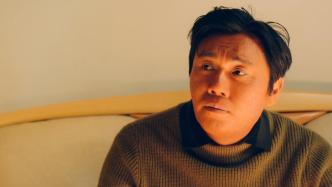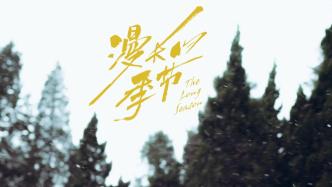
Note: This article contains spoilers
Xin Shuang's first drama "The Hidden Corner" was a big success, and her new drama "The Long Season" not only gained a lot of attention, but also endured a lot of pressure. But "The Long Season" did not lose the chain. Douban scored 9.1 points, and then the score rose slightly all the way, and the score rose to 9.5 points in the finale.
Xin Shuang has surpassed himself. "The Long Season" is a work of art, and it is also a piece of precious amber in the era, recording pain and recording the most precious love and righteousness.
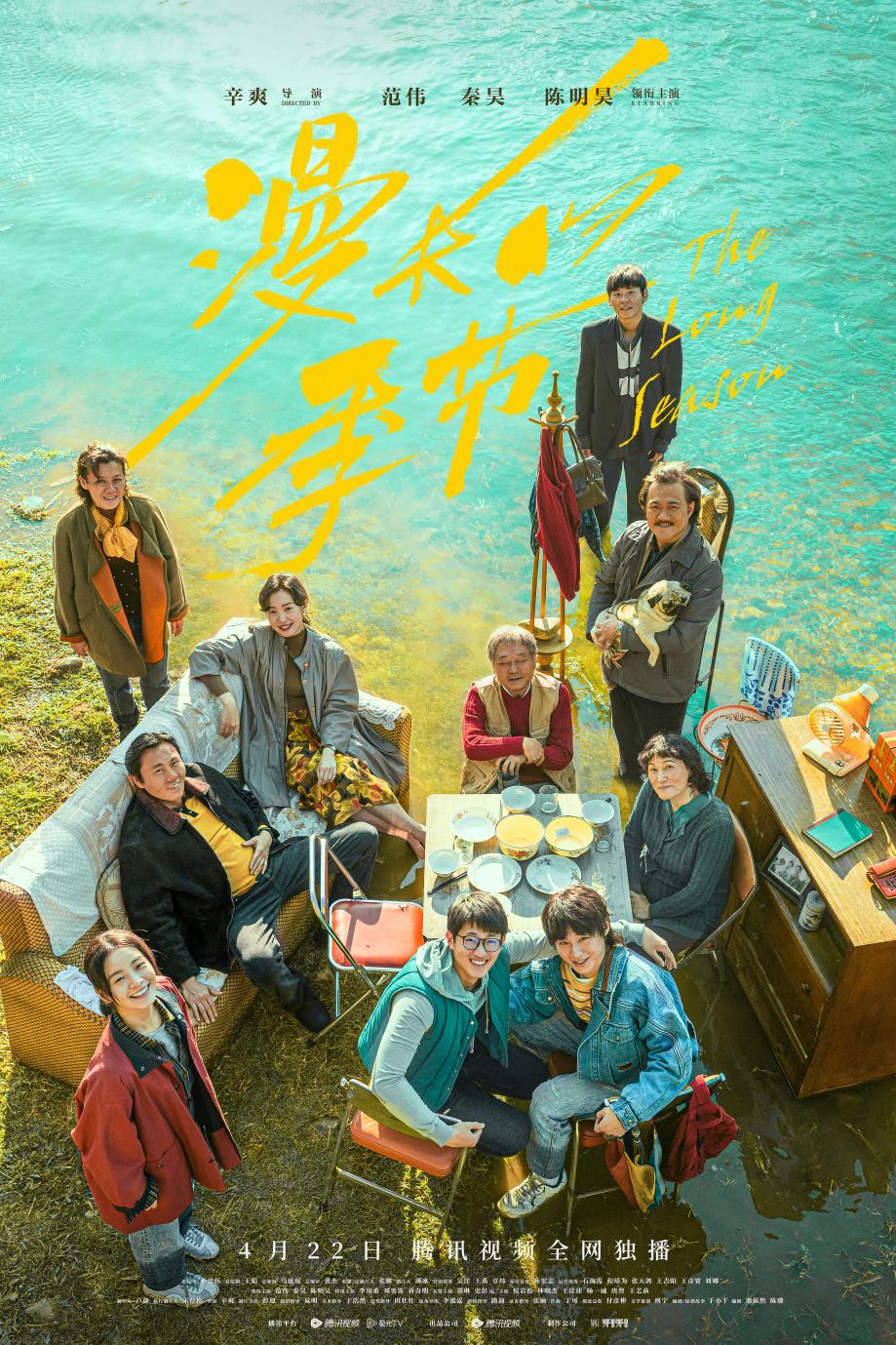
The Long Season poster
A work of art that can be seen
In recent years, "Northeast" has become the most popular regional background for suspense dramas, and the changes in the Northeast around the 1990s constitute the hidden reason for the occurrence of unsolved cases. At first glance, The Long Season seems like yet another genre entry in this process. The story takes place in a small northeastern industrial city called "Hualin". It started with a taxi card fraud incident in 2016, leading to a corpse case that happened 18 years ago. Time clues are intertwined with each other.
But the audience can quickly discover the difference in "The Long Season". In terms of audio-visual language, "The Long Season" surpasses most of the works on the market. It is the kind of creative and artistic handicraft, from color, photography, composition, editing to soundtrack, it presents everything. It's the texture of the movie.
For example, the connection of the three timelines in the play, "The Long Season" adopts a very adventurous approach. It does not even mark the timeline for the audience, and the audience does not have to worry about not being able to understand it. Apart from the superb transitions, the internal texture of the story It allows the audience to naturally slide into different time and space contexts, and we have a movie-like viewing experience immersed in a dark movie theater.
"The Long Season" broke through the stereotyped impressions of the dark sky, vast snowfields, desolate industrial bases, bleak atmosphere, and the cold that challenged the limits of the human body in previous Northeast crime stories. The story takes place in late autumn in the Northeast, and it always has a golden hue, just like a piece of crystal clear amber, polished smooth and delicate, without impurities or rough wrinkles.
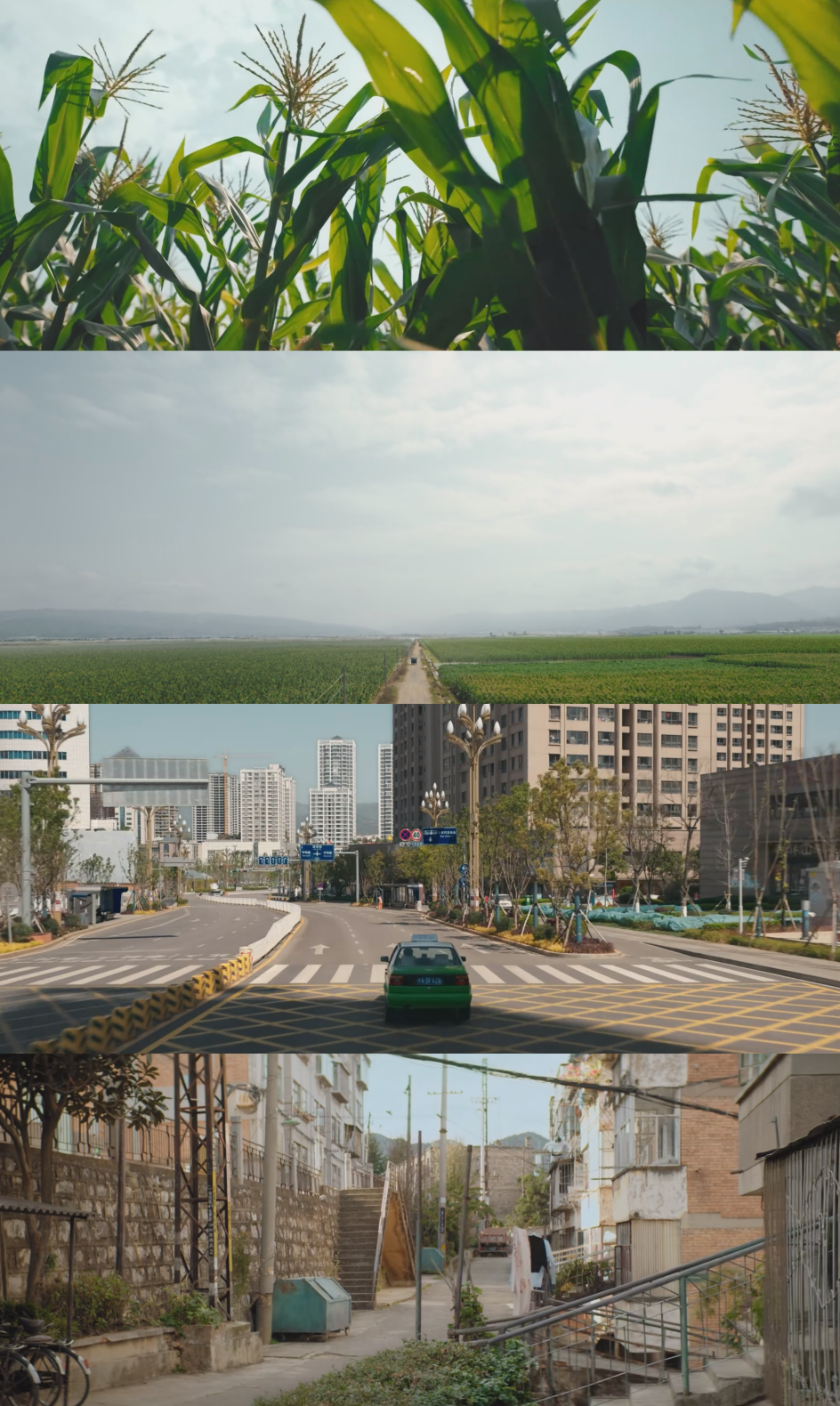
Northeast stories are not only icy white, but also amber-like golden.
What is rare is that although "The Long Season" is a "movie-like TV series", Xin Shuang maintains his personal characteristics while minimizing the narcissism and self-centeredness of some personalized directors. "The Long Season" is not that kind of "private drama". It has a strong publicity. The first 10 episodes are full of various Northeast comedy elements, which can always make the audience smile (the last two episodes make the audience cry. talk).
"The Long Season" is not separated from the general public by its superior artistry, it takes the audience into its artistic structure. In the capital-heavy and high-risk film and television industry, it is a virtue of a director to take both artistry and commerciality into consideration.
Marking the Pain of the Times
There is no form independent of content. The essence of "The Long Season" being able to "confess the gods" is that it tells a good story, and it tells a good story very well.
When a work focuses on the Northeast story before the new century, it is almost impossible to skip the "lay-off tide", and "The Long Season" is no exception. Like many industrial cities in Northeast China at that time, Hualin was a city built around a large state-owned factory, Huagang. There were family buildings, factory-run hospitals, and factory-run schools. Workers’ families were supported by the factory from birth to death. The happiness of workers The sense of belonging and belonging was once particularly strong. It was only after the 1990s that state-owned enterprises suffered from low development efficiency, poor product competitiveness, difficulties in business operations, and the overwhelmed social security system. It was time for reform.
Wang Xiang (played by Fan Wei) is a worker who grew up with the factory. He has experienced the golden age of the factory and has a strong sense of collective mission and honor. Although a little rigid, noble, face-saving and machismo, Wang Xiang is upright, affectionate and righteous. He has a lot of prestige in the factory, and he is also a good father who loves his family and is responsible. The wheels of the times are about to roll over, and Wang Xiang is still sure that the factory has only encountered temporary difficulties and everything will be fine. He also wants to arrange his son Wang Yang (played by Liu Yitie), who graduated from high school, to work in the factory.
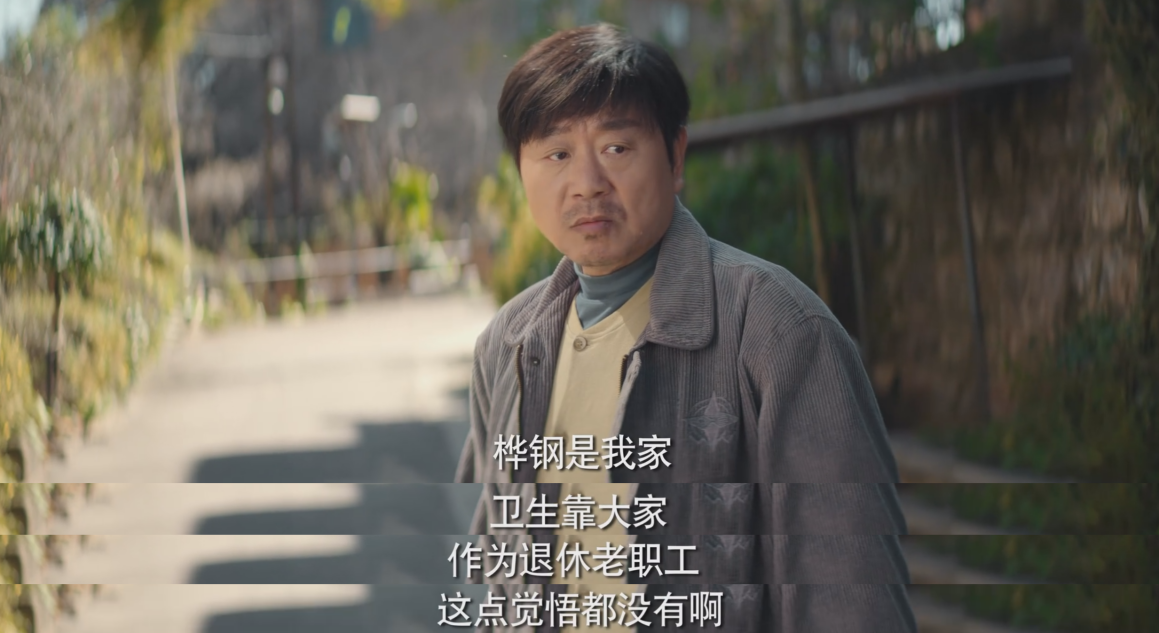
Wang Xiang, who loves the factory like home, "reprimands" the retired old workers who dig through the garbage
As a rare college student in the 1990s, Gong Biao (Qin Hao) was assigned to work in the factory office. He was eloquent and wanted to show off his ambitions. He also didn't realize the crisis was coming, and felt that he had a bright future. Gong Biao is pursuing Huang Liru (played by Wang Jiajia), a nurse at the factory-run hospital. It happens that Huang Liru is the cousin of Wang Xiang's wife. With this relationship, Gong Biao and Wang Xiang got very close, and the two affectionate people hit it off right away.
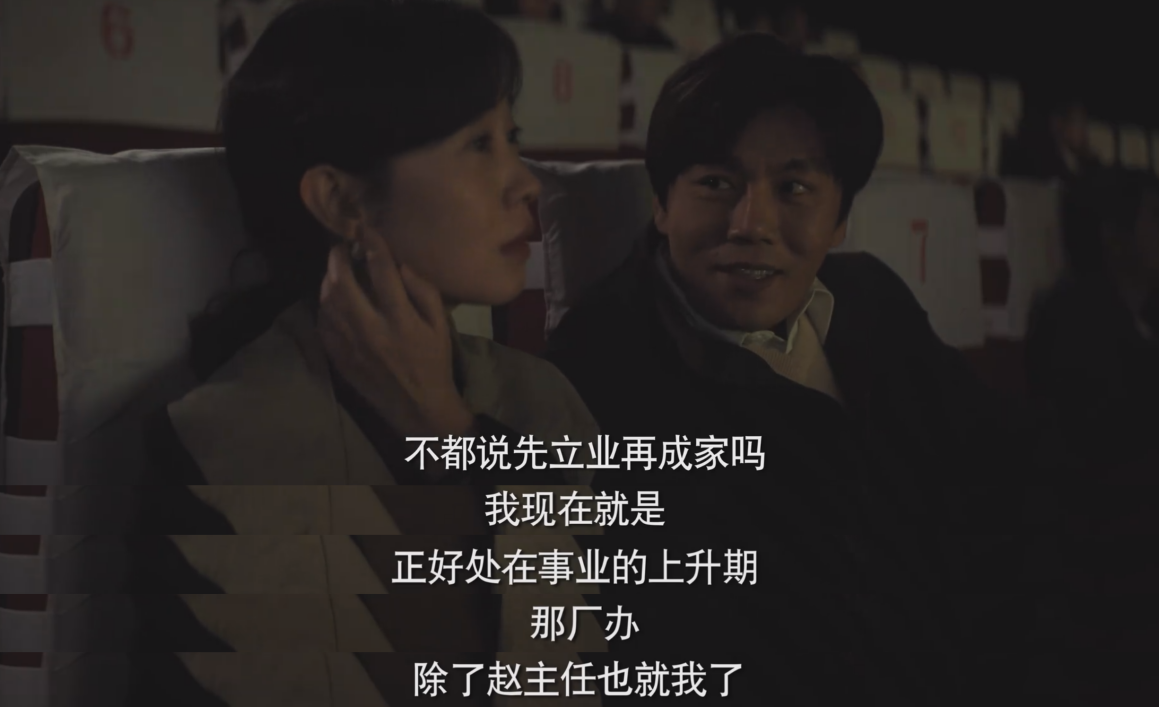
Gong Biao (Qin Hao) is pursuing Huang Liru (Wang Jiajia)
The times are so cold that people are caught off guard. In 1998, corpses were discovered accidentally in the factory area, and the wave of laid-off workers finally arrived. Wang Xiang and Gong Biao, who angrily beat the factory manager, became the first batch of laid-off people, and then a more devastating blow came - Wang Yang was found in the river corpse.
The interval between 1998 and 2016 is a long blank, and the episodes seem to say nothing, but in everyone's situation in 2016, the audience can clearly see the traces left by the wheels of the times.
In 2016, Wang Xiang had gray temples. He used to drive a train, but now he drives a taxi and lives with his adopted youngest son Wang Bei (played by Shi Pengyuan). Wang Bei gave him the belief that he can survive. But he has been trapped in the "long season" when Wang Yang died. He thinks that Wang Yang committed suicide, and he hopes to find the murderer.

Wang Xiang with gray temples
Gong Biao, who used to be the proud son of heaven, is now a down-and-out middle-aged taxi driver. Diabetes has made him fat and bloated. Although he married Huang Liru as he wished back then, his life has been muddled for more than ten years, and the relationship between husband and wife has dropped to freezing point.

In 2016, Gong Biao really changed a lot.
The lives of some people around me don't seem to get much better. 18 years ago, Ma Desheng (Chen Minghao), a police officer who investigated the corpse case in the police station, quit in a fit of anger. Now he has become a proud Latin dance master in the ballroom of the elderly, chic and lonely.
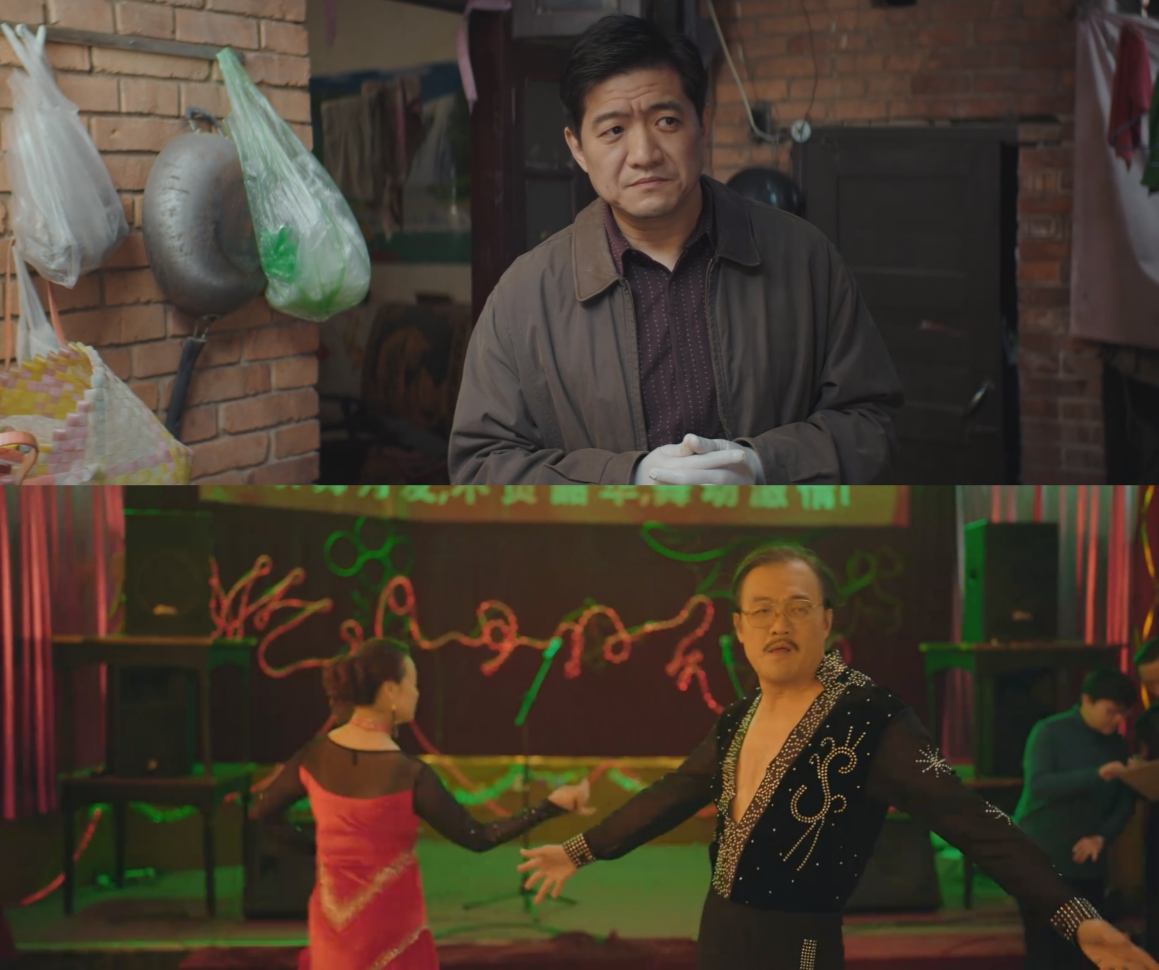
Ma Desheng in 1998 and 2016
Eighteen years ago, Li Qiaoyun (played by Liu Lin), a female worker in the pound room of the factory, felt the chill of life earlier than others: her son suffering from leukemia, her disabled husband, and four elderly people made her breathless. The benefits became more and more sluggish, so she could only go to the ballroom as a bartender, and secretly called her son during work breaks to sing "Little Star" for him to lull him to sleep, the tears in the corners of her eyes could not stop streaming down. 18 years later, she still has to get angry at the Social Security Bureau for retirement...
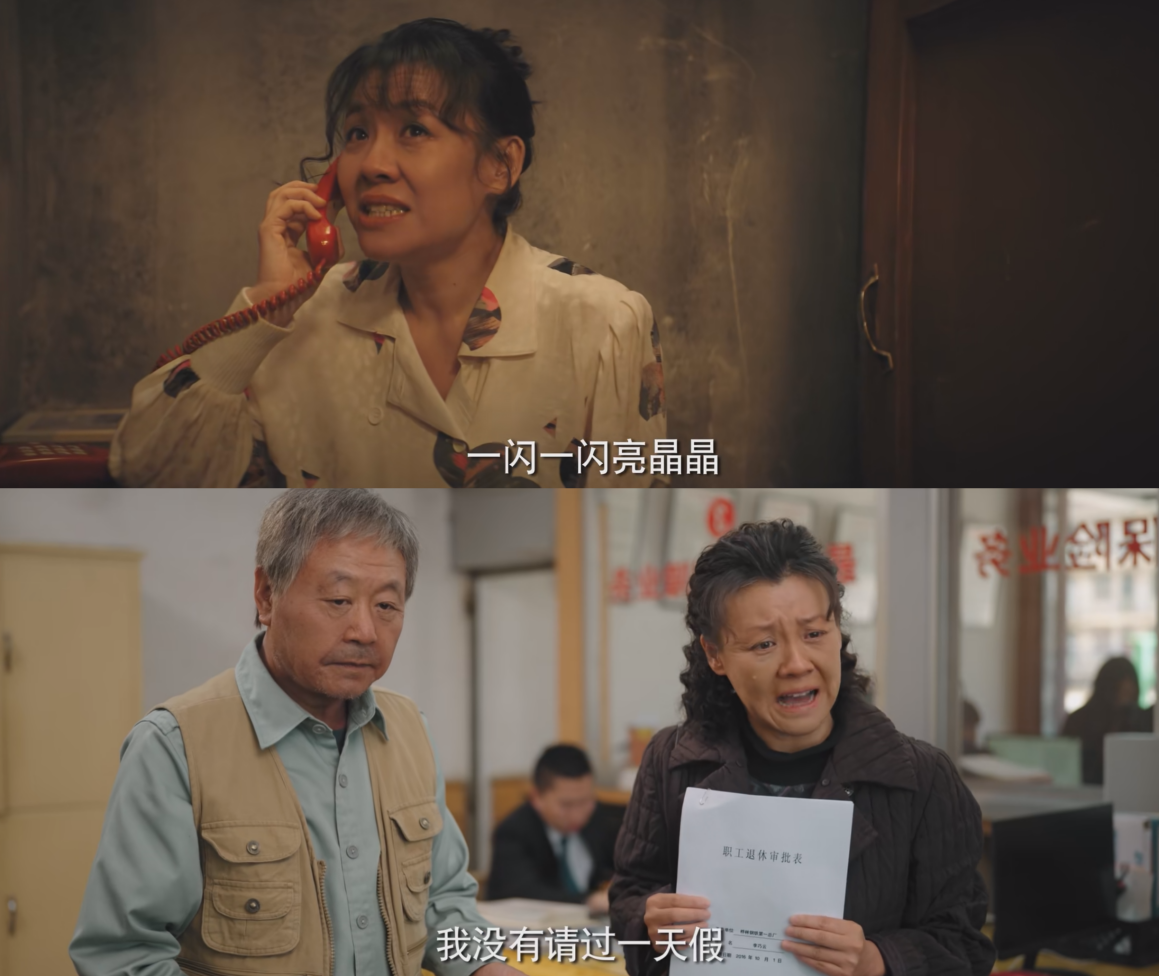
Li Qiaoyun (played by Liu Lin)
How the times will change is indeed beyond the control of ordinary people, but this is not the reason why we can only choose to obey and forget. Some deep-seated sorrows need to be remembered, and some heart-wrenching pains need to be comforted. The reason why forgetting the past means betrayal is because of the lack of introspection and helping those in need from the perspective of the weak, it is possible for some misfortunes to repeat themselves, and it is often the most vulnerable and miserable people who bear the bad luck. For example, Shen Mo (played by Li Gengxi) and Fu Weijun (played by Jiang Qiming) had already suffered a lot before the wave of laid-offs came; during the wave of laid-offs, the workers suffered; in 2016, Wang Xiang, Gong Biao and others are still at the bottom of their lives ...
Forgetting has been happening all the time, "The Long Season" will become the amber of the times, it will leave a painful specimen for the times, remind people how the previous generation lived, what they experienced, what they endured, and remind us today , What a tortuous road the fathers have gone through, reminding how a grain of sand of the times turned into a giant mountain on the heads of some ordinary people.
Preserve the most precious love and righteousness
If "The Long Season" only tells the story of the first two parts, then it is not enough to "confess the gods", because it is a series of crime suspense dramas set against the background of the Northeast laid-off tide, as well as the "Northeast Renaissance". The general narrative of Northeast-themed novels. In these crime stories, the murderers are often the frustrated people in the wave of laid-offs. Naturally, their crimes will not be forgiven by people, but the narrators can't hide their sympathy for them, trying to use their failures to contrast a certain part of the era fail.
"The Long Season" jumps out of this almost overflowing narrative routine. The dismemberment case and the death of Wang Yang have always attracted the audience, but the final direction of the two murder cases is unexpected and reasonable. Although the murderer has been revealed in the latter part of the plot in the corpse case, the suspense of Wang Yang's death was not revealed until the finale. In other words, as far as the suspense setting itself is concerned, "The Long Season" has done quite well.
But suspense is not the whole of this drama, and the haste and powerlessness of individual fate under the wheels of the times are not the only focus of this drama. The core part of "The Long Season" is still what Xin Shuang said, "In all the stories , people are always the most important. Whether it is the past or the present, even if it happens anywhere, the essence of the story is about how people contend with some forces, and the object of the struggle can be the inner self or the outer self. The other in existence, or a more abstract destiny."
"The Long Season" does offer viewers a very different way to fight, too.
How do ordinary people fight against the times? What we say most often is also mentioned many times through the mouths of the characters in the play, "look forward". On the positive side, "looking forward" is an encouragement that allows people to put their grief behind them, engage in it, and start living a normal life. For example, in "The Long Season", Gong Biao's wife Huang Liru is a typical "looking forward" person. She used to have an affair with the factory manager, but after being exposed, she resolutely married Gong Biao. When the relationship came to an end, she had a new "partner", and when it was time to divorce, she also resolutely divorced. It can't be said that Huang Liru's choice was wrong, she is pragmatic, she is the majority in the world, if she can't live well with Gong Biao in this life, she still hopes to have a good life with him in the next life.
But sometimes, "looking forward" means people's active forgetting. When we abandon the pain, we also abandon the friendship. Some people may become "better to die than to live." Betrayal can be given up. For example, Yin Hong (played by Wang Yidi), another escort who framed Shen Mo in the past, did everything she could to "look forward", and Shen Mo also "looked forward" anonymously for a time...
"Looking forward" is the pragmatic choice of the times and most people. It is unknown how many people can keep the bottom line in their hearts while "looking forward". Therefore, those who can hold on to the most precious part of an era are more likely to be some "difficult" people. They may have trouble with the times, others, or themselves. They want to ask "why", they persist in seeking the truth, and they want to stick to those ancient and basic moral bottom lines. When most of the people in the crowd are bustling "looking forward", they who stay in place seem so axis, so weird, so failed, but they don't care, because there are indeed people in the world who "look forward" rather than dying. See" something more precious.
In the 11th episode of "The Long Season", the layered emotions of the plot finally exploded. Wang Xiang, Gong Biao and Ma Desheng, who could not "look forward", released the brightest moments of their humanity. That was Wang Xiang in the taxi, telling Li Qiaoyun his true heart to Li Qiaoyun in a tone of talking about others, "(She) is very nice, this life is not easy, she has to be strong, but come on, when other lesbians meet She is always crying when something happens, she is cheerful, which is quite admirable." Li Qiaoyun asked, then you don't want to take a step forward with her. Wang Xiang said, "People can look forward no matter what they are doing or what they are doing, but I can't do it. I'm happy for her, I just want her to live a more comfortable life for the rest of her life, don't worry about my little old man, just hold back." Li Qiaoyun in the back seat was already in tears, so why not the audience?
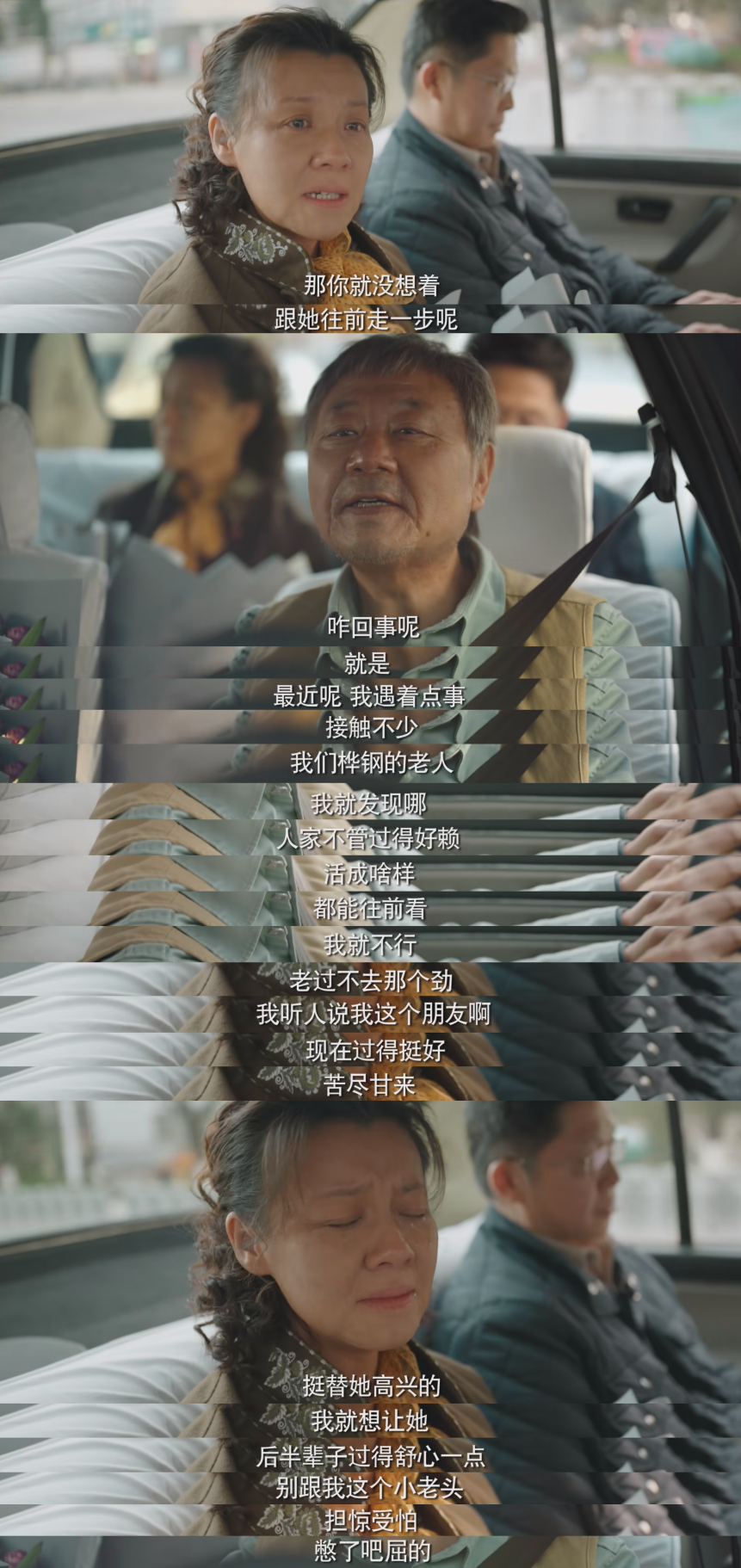
Wang Xiang's "confession" and farewell to Li Qiaoyun
Gong Biao seems to be the kind of person who can "look forward". He has a precious insensitivity and is silly, as if nothing matters to him. But in fact, he is always in the same place, and he has an inappropriate simplicity and emotiveness. So he persisted in the investigation with Wang Xiang. Because of the smile on his wife's face, he put down the stick that he planned to use to hit his partner. He chose to divorce and leave the house. He released the racing pigeon he raised as a child... he I don't know if it's true or not that I won the lottery. I don't know if the big truck that hit him was an accident or Gong Biao's "intentional".
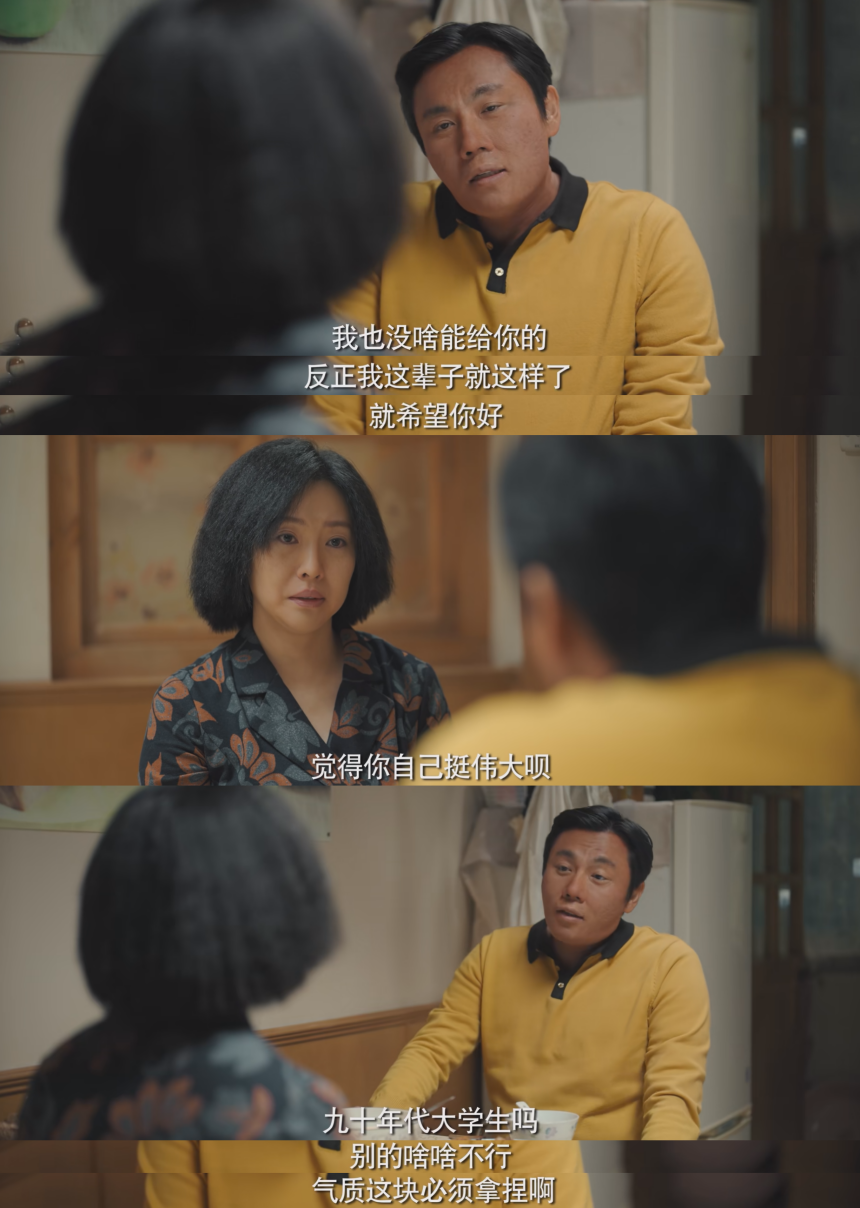
Gong Biao's "Let Go"
Ma Desheng, who is irritable and not easy to provoke, always burns the fire of justice in his heart. 18 years ago, regardless of his personal future, he could throw his angry fist at Uncle Shen Mo who violated Shen Mo. 18 years later, when Wang Xiang was about to compromise and accept his fate after going around, he was able to decisively give Wang Xiang the last strength. "There are some things that I can't forget. It's not about you alone. I will fix this matter to the end"...
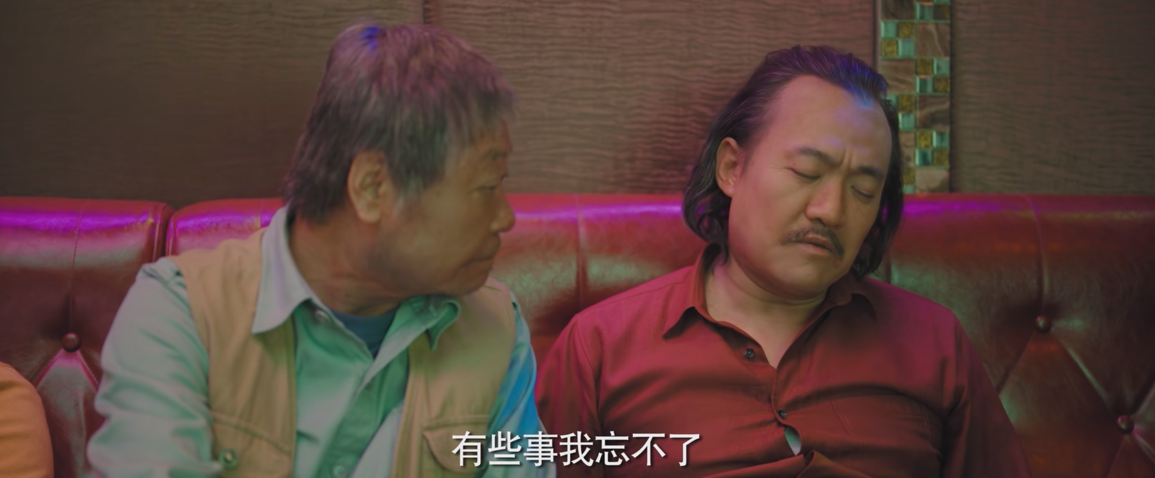
Ma Desheng who is also unable to pass
The three frustrated people left behind by the times are dancing wildly in the KTV, making people feel ridiculous for them and feel heartbroken for them at the same time. Love and righteousness are worth a lot of money. No one would have thought that among the warriors and righteous men holding the gate of darkness, there are also three people who look so desolate and unreliable. They stayed put and let us swarm up to "look ahead". And their painful "difficulty", isn't it a brave way of "struggle"?
At the end of the story, when Ma Desheng cried like a child in the police station after solving the case, when Wang Xiang really walked through this long season, when they waited for the belated justice and truth for themselves, for us, and for the times , they can finally "look forward". "Looking forward", the choice that so many people make easily, is the extravagant choice of this group of little people who have suffered a lot, and it is also the best blessing for them.

Finally, everyone can "look ahead".
In the amber of the times, the most precious and moving part is the persistence of love and righteousness, and the "look forward, don't look back" after going through thousands of sails and having a clear conscience. What we couldn't do, The Long Season helped us keep it.
